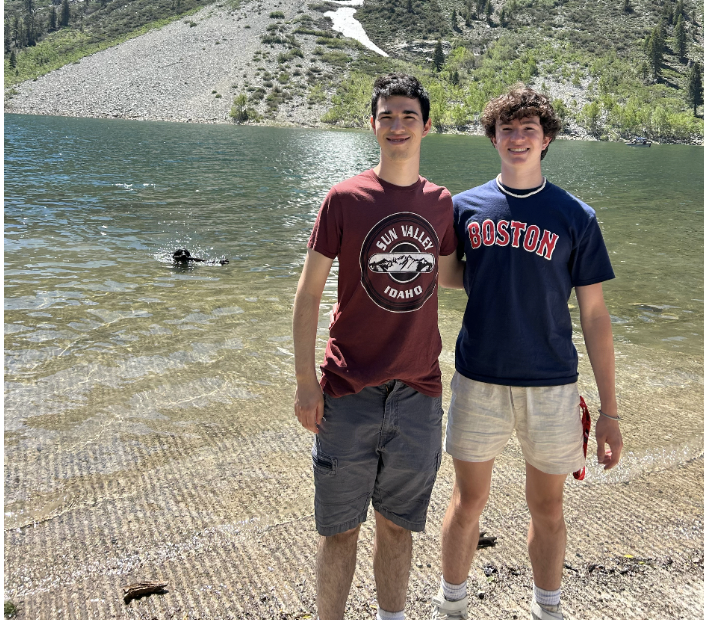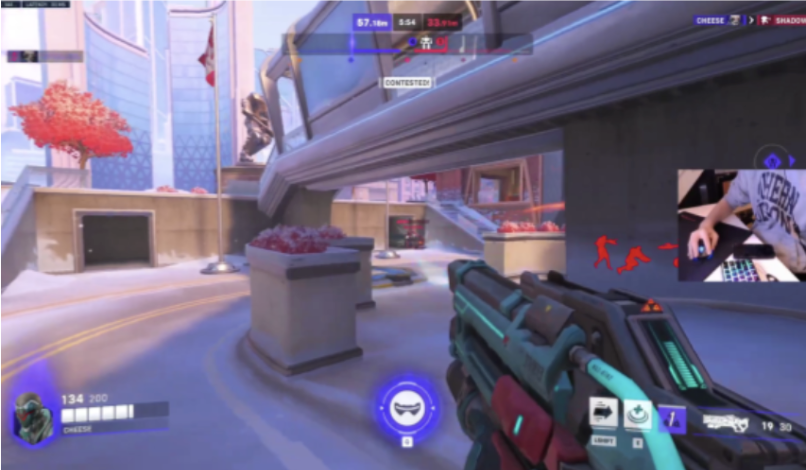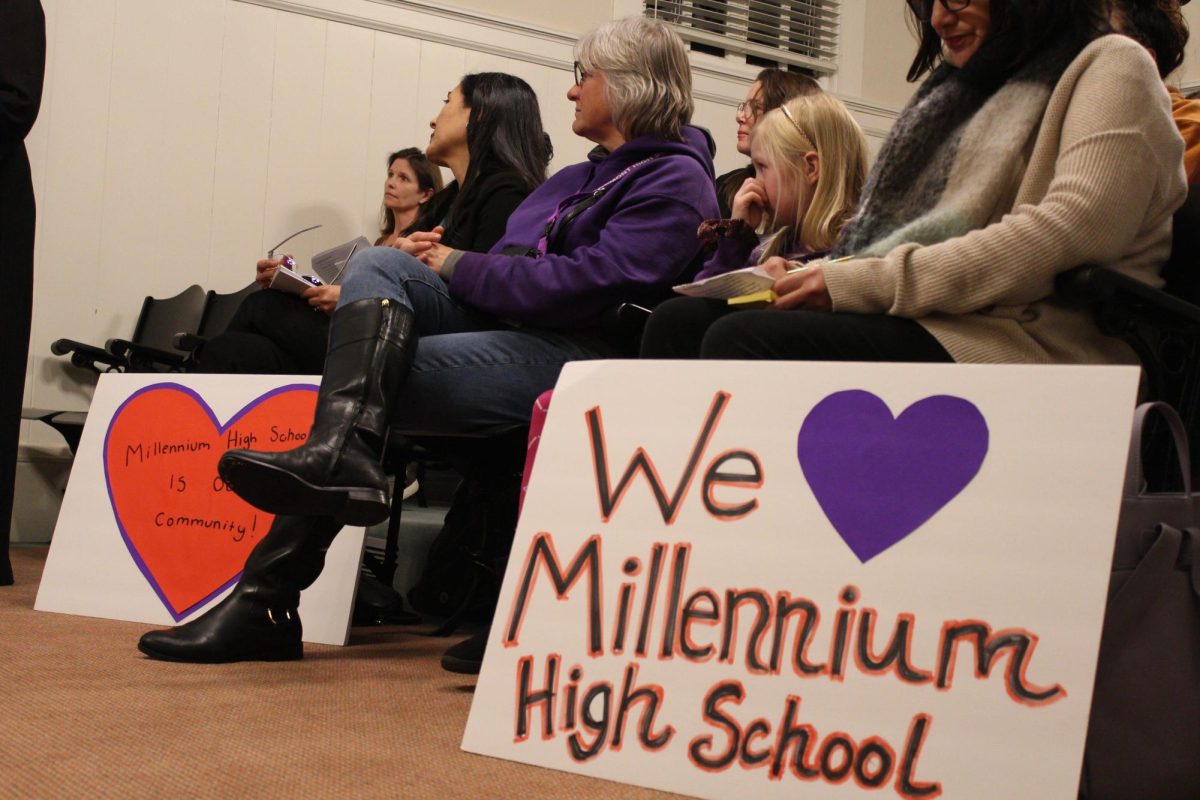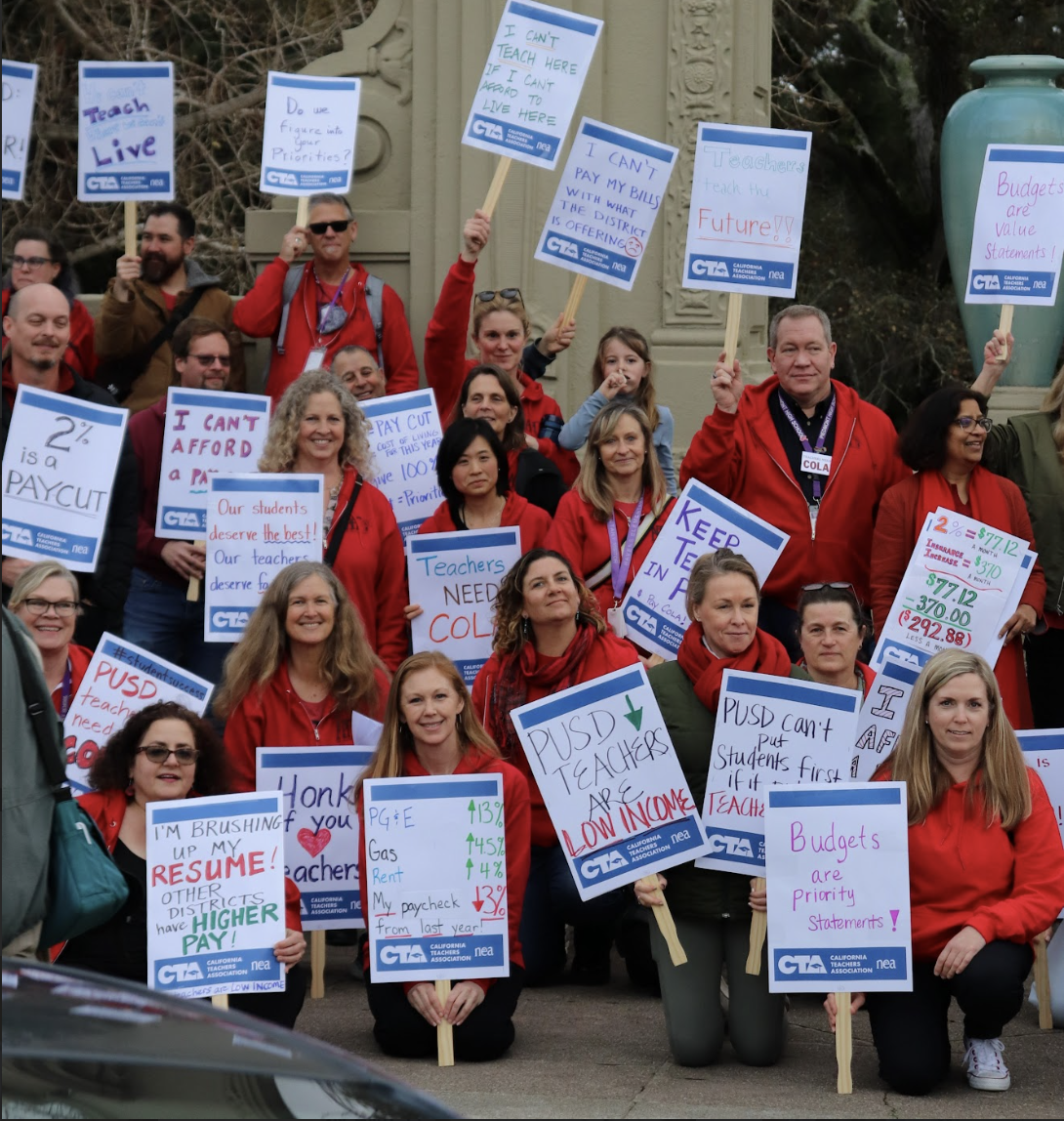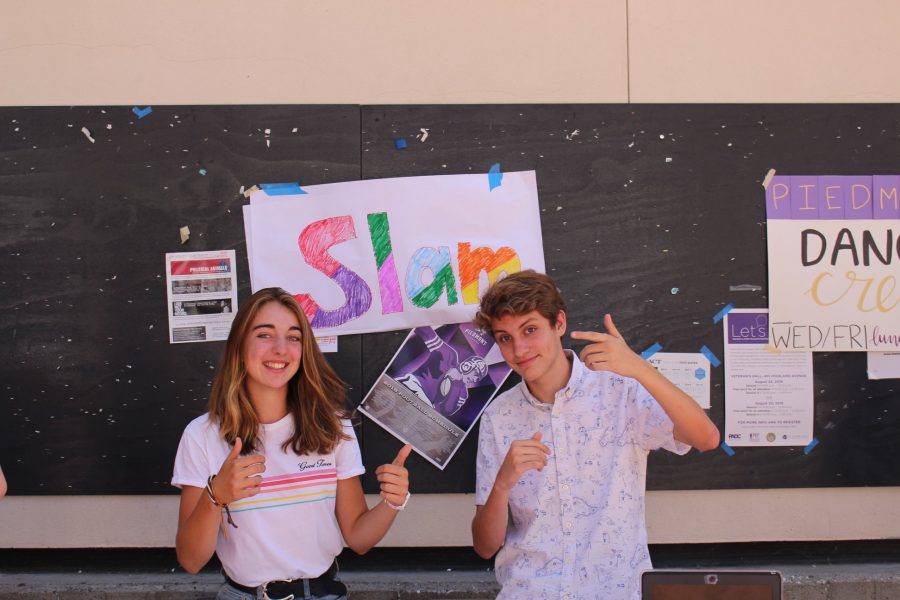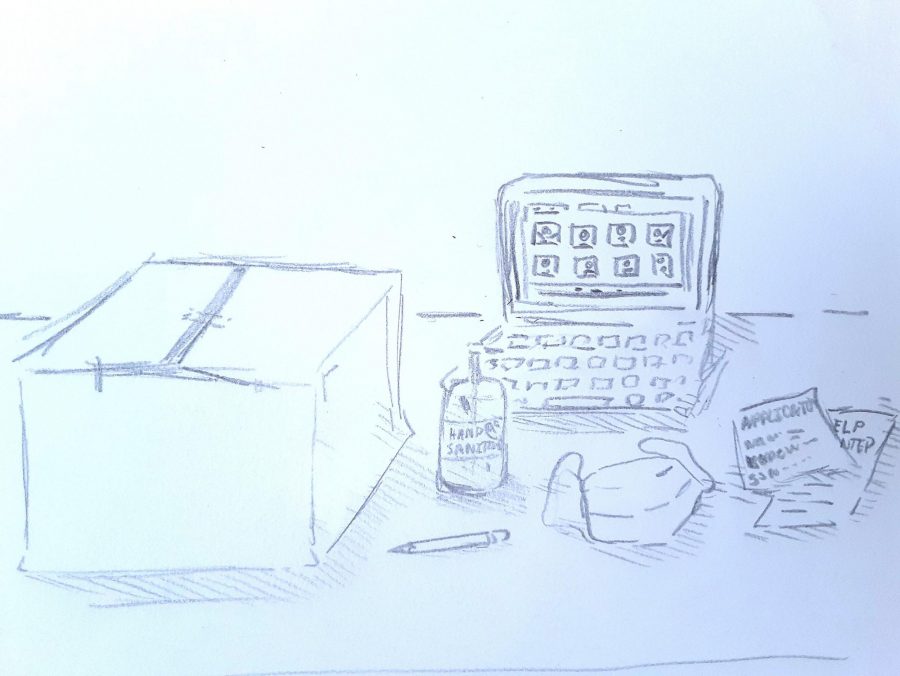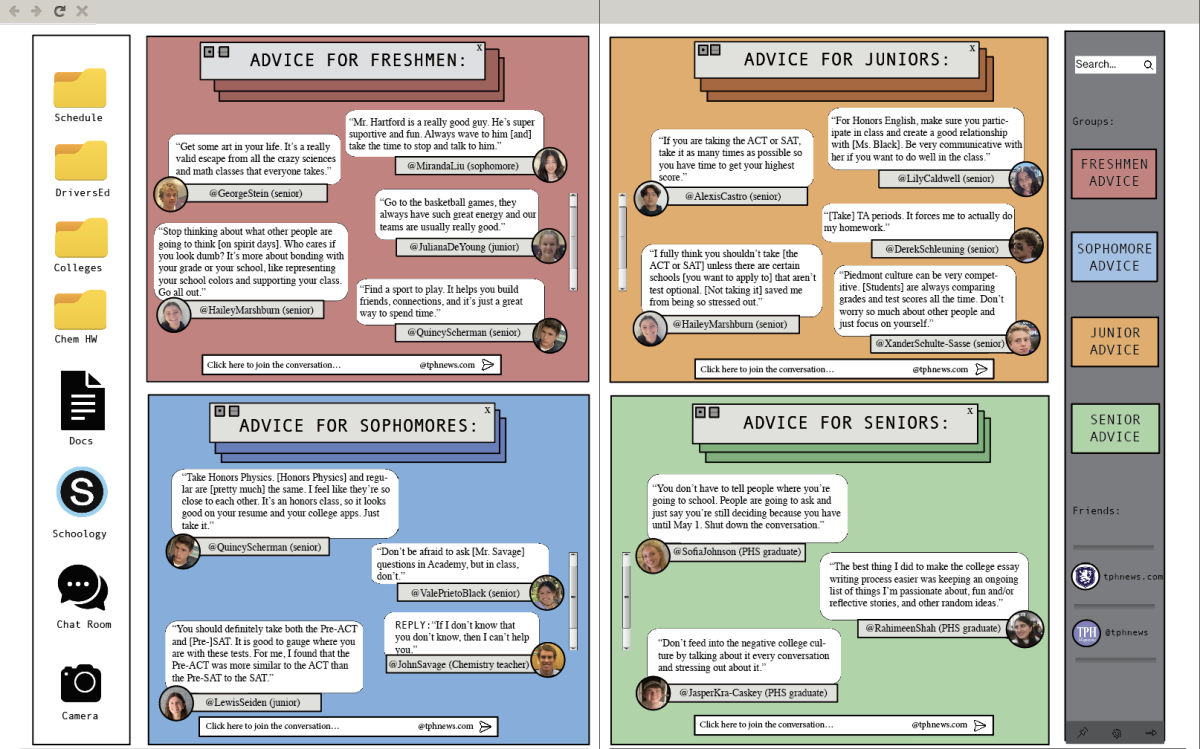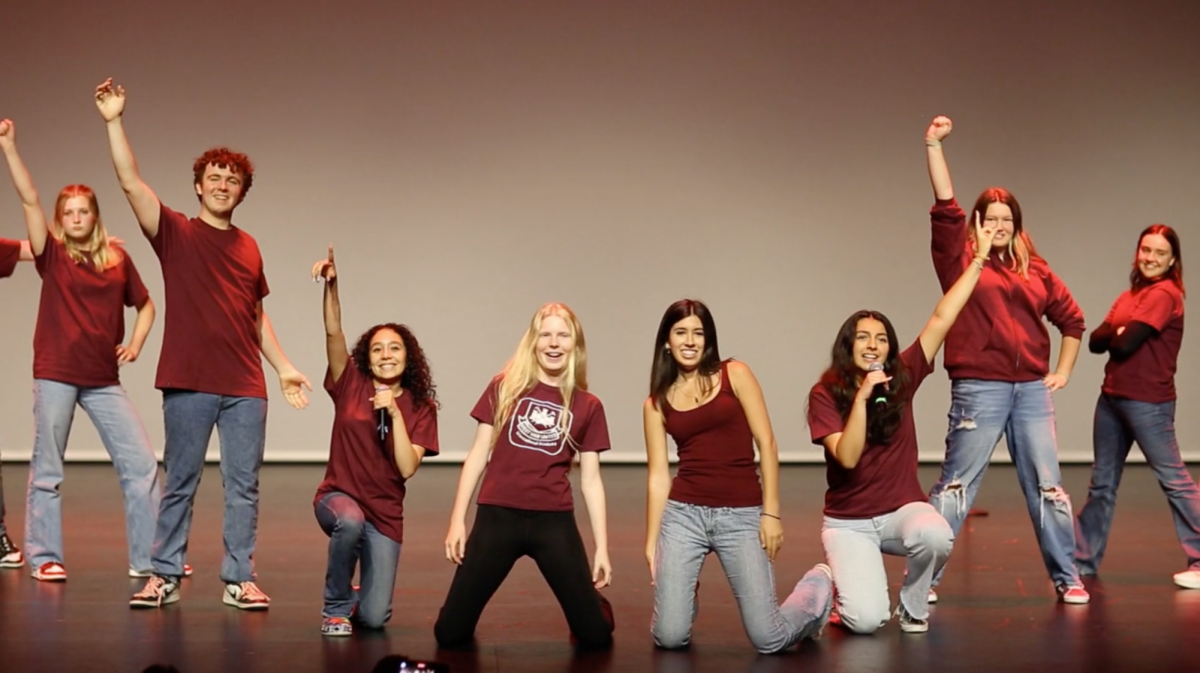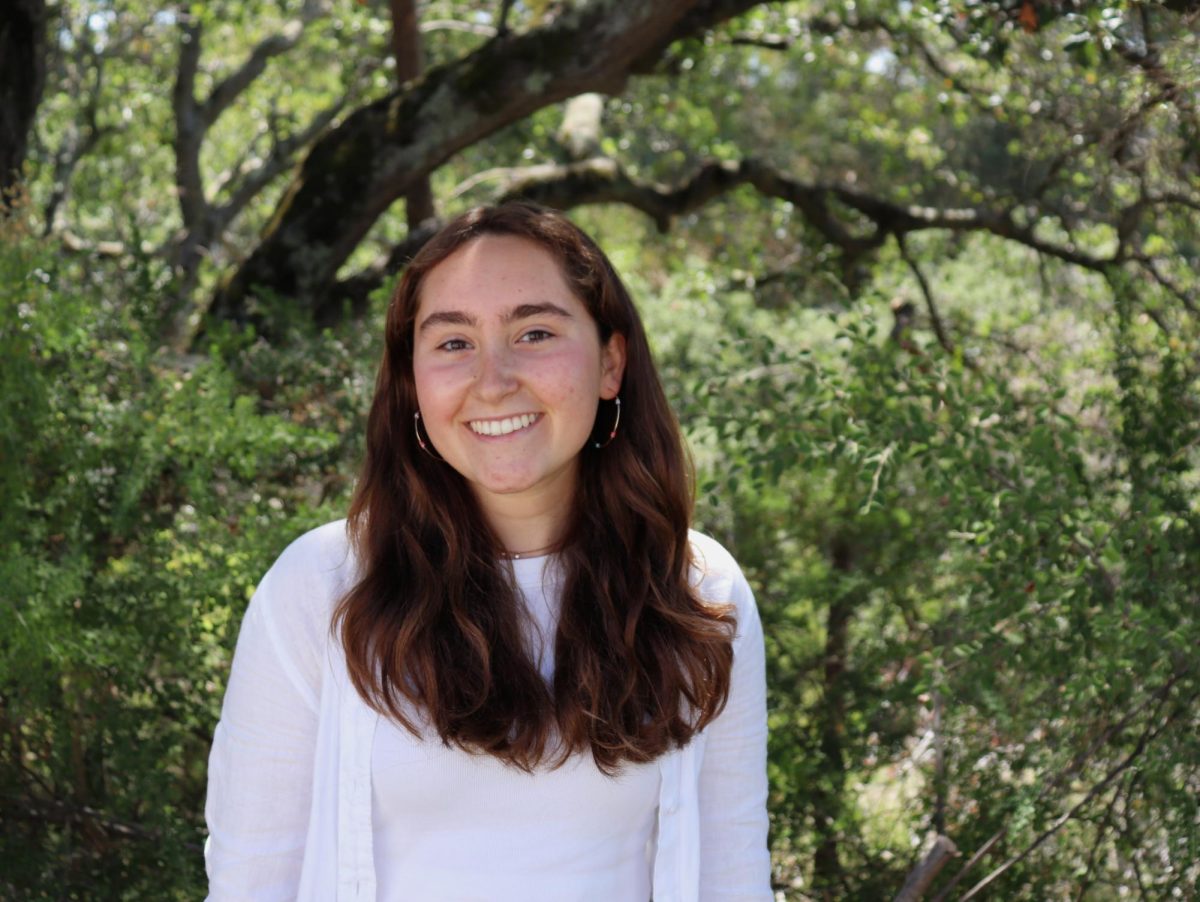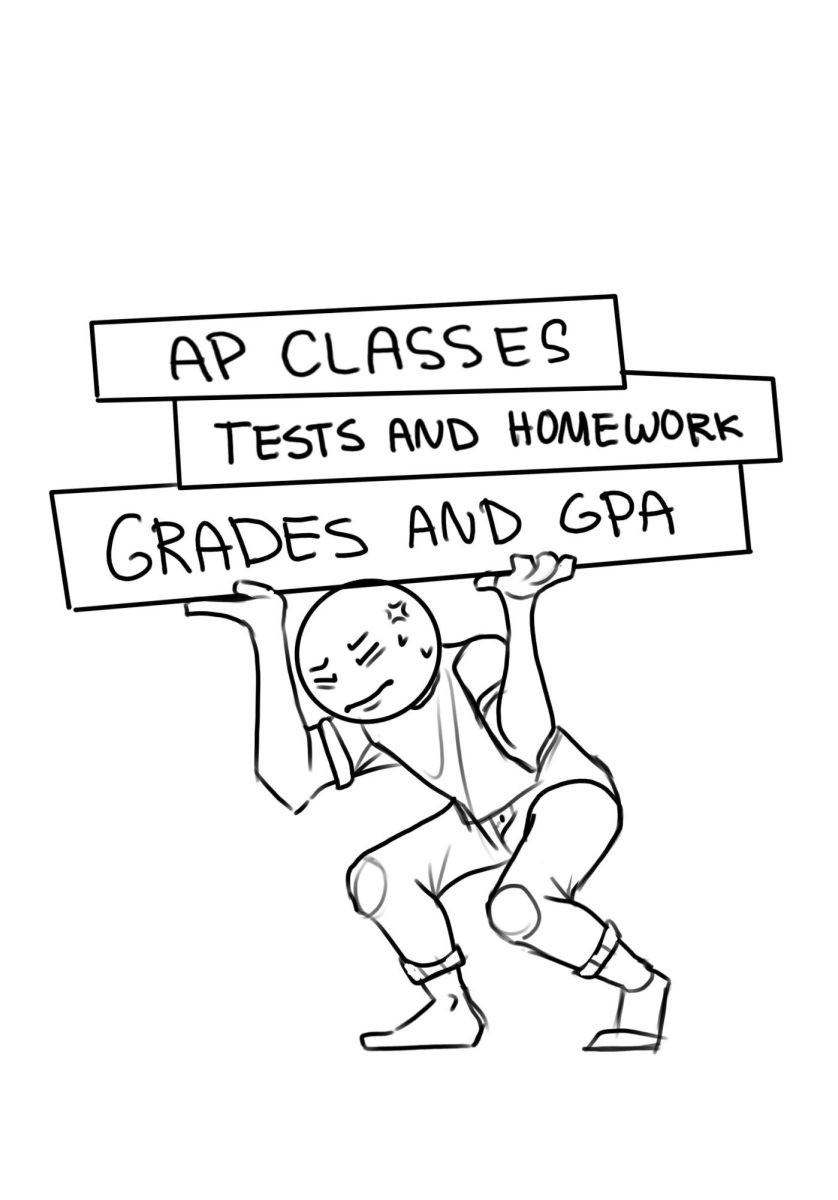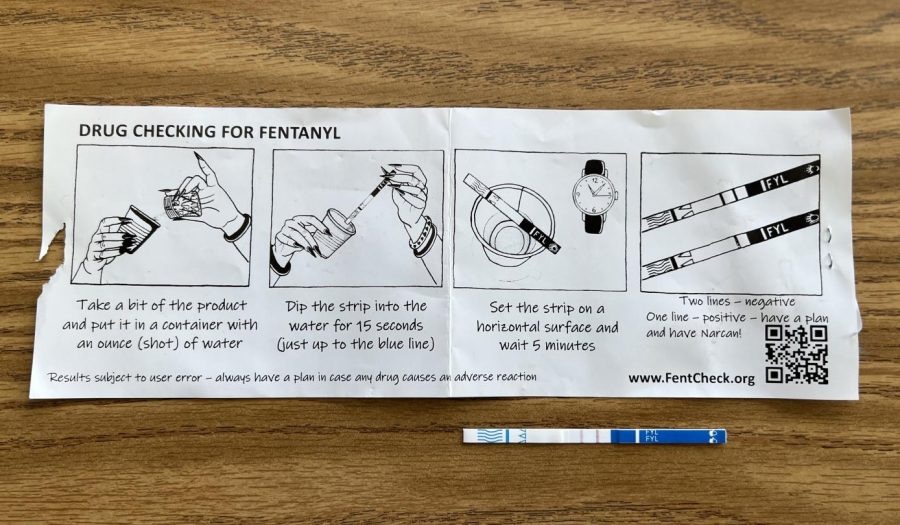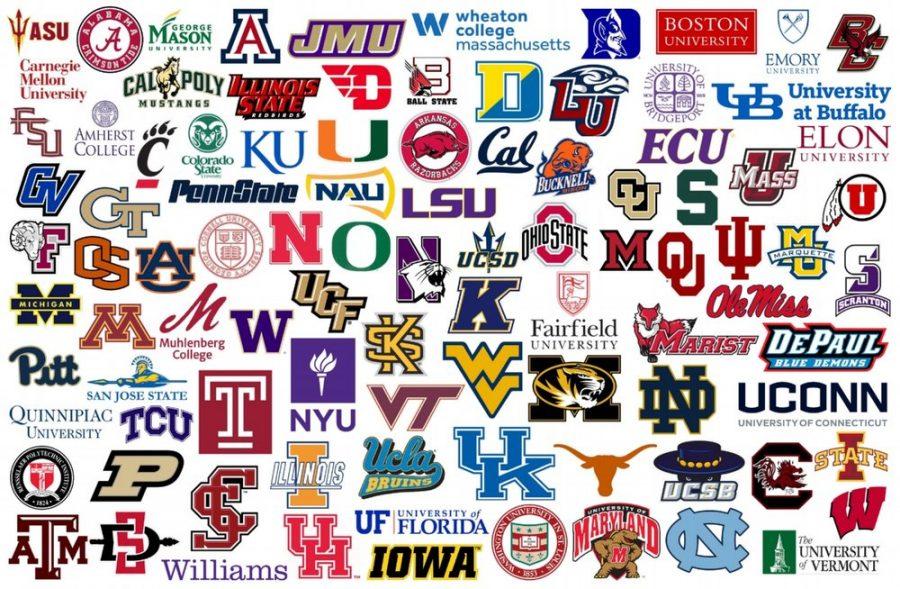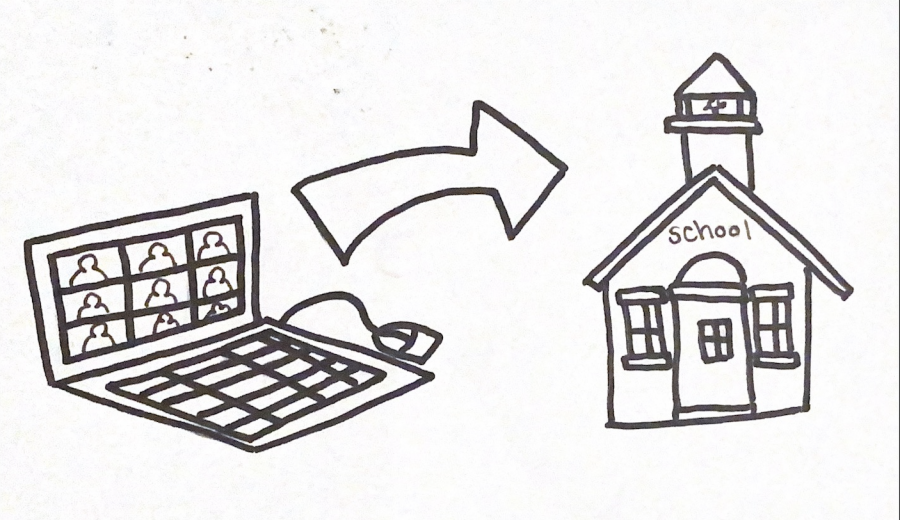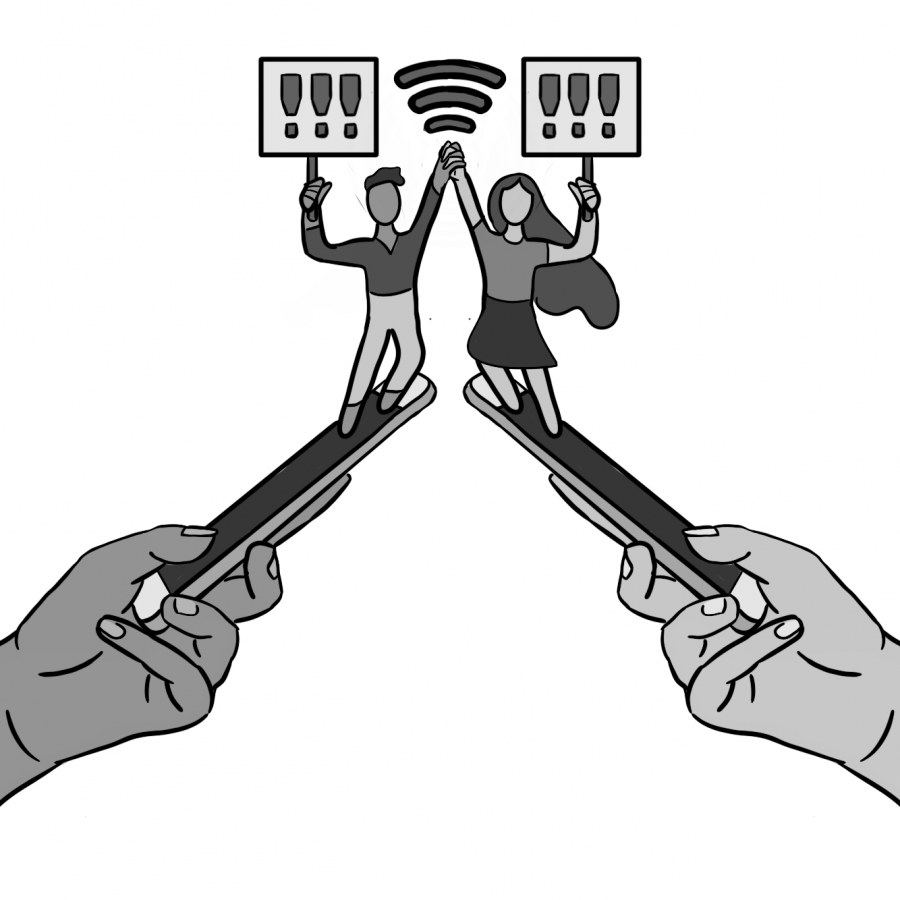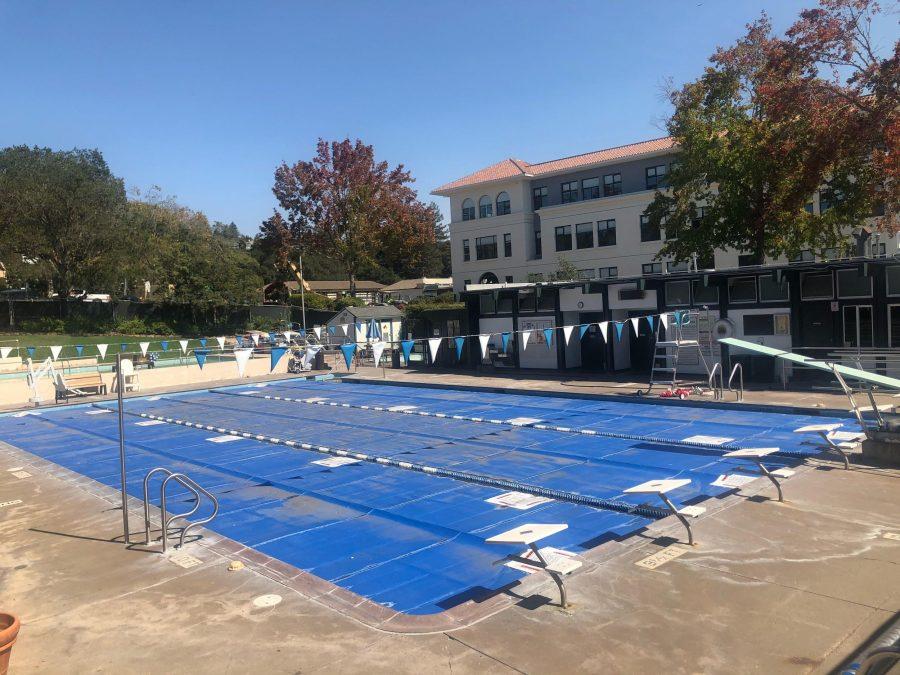Pool measure goes to polls
On the ballot on Tuesday, Nov. 3, Piedmont residents will be able to vote on Measure UU, a bond measure providing for the construction of an entirely new city pool, City Councilmember Jen Cavenaugh said.
Measure UU needs two-thirds of a majority vote to win, Councilmember Tim Rood said. He hopes the measure will pass because the existing Piedmont Community Pool may no longer be repairable.
“We know from surveys that certainly far less than two-thirds of people in Piedmont ever used the pool,” Rood said. “So we’re asking people to pay a few extra dollars on their property tax to support a facility that will serve our youth, our schools, our seniors, and a lot of other jobs.”
Cavenaugh said the pool is an important facility in Piedmont to individuals and families, but also to the schools; P.E. classes and sports teams rely on the location of the pool.
“I don’t think we can imagine a city that didn’t have Witter Field or the baseball diamond or the softball field or Binks gym,” Cavenaugh said. “And in the same way, I can’t imagine us not having a Piedmont Pool for high school athletes.”
Rood and Cavenaugh both said that if Measure UU does not pass, Piedmont will most likely remove the pool altogether and not replace it.
“Unless this or some other similar measure passes, unless we know what the future is for the pool, it’s going to be very difficult to reopen it,” Rood said.
Senior Kegan Muhiudeen, who designed the website for the Measure UU campaign, said that he and his family have been using the pool since he was a little kid. He is hopeful the measure will pass and wants people to know that, if it does not, it would be a loss to the city.
“Since it’s in the center of town, it’s everyone’s pool, which is why that location is so important,” Muhiudeen said. “It’s also [where] the other athletic stuff is, so that’s where you have the basketball courts and the tennis courts. It just makes logical sense to have the pool here.”
Sophomore and junior varsity water polo player Macie Gard said she sees the benefit of a new pool. It is hard to tread water in the shallow end of the current pool as required by water polo, and a new, deeper pool would be more convenient. She also said she understands why the pool is an important resource to the community.
“Our city pool is our school pool,” Cavenaugh said. “We have very few resources, facilities, and park space in our city. And what we do have, we share liberally between the city and the schools.”
Freshman and water polo player Peter Krumins said that the pool is necessary to motivate him to play because if it were elsewhere, he worries fewer people would show up to support the team in games. Fan support is essential to any sport, he said.
“Our local pool is filled with fond memories for every athlete and it would be a shame if it was gone for good,” said senior and varsity swimmer Noah Kwong.
Cavenaugh said that the current Piedmont Pool leaks over 3,000 gallons a day—over one million each year—and is not sustainable.
“A new state of the art pool is going to be much more energy efficient than the old one was,” Rood said.
City council considers Reach Codes
The Piedmont City Council will vote on the Reach Codes, which will go beyond the California state climate action goals and require Piedmont residents in specific circumstances to invest in electric appliances or renewable energy.
The Reach Codes will mandate residents to choose sustainability options from a list, such as installing an electric water heater, when doing some home renovations, said Cavenaugh. The Reach Codes take effect for renovations starting at $25,000 and there are many exceptions to the mandate.
Junior and Green Club co-president Sophia Ware said that the Reach Codes are important in reducing Piedmont’s carbon footprint, helping the city contribute less to climate change.
“Without passing Reach Codes, we won’t be able to get to the Piedmont Climate Action Plan goal of a 40 percent reduction in greenhouse gases by 2030, and an 80 percent reduction by 2050, so it’s really crucial that they’re passed,” Ware said.
Rood said the potential requirements were developed after gathering public opinion and formal opinion polling. As California experiences large fires much earlier than usual, taking action on climate change is only becoming more important, he said.
“A lot of people [ask], ‘Well, what’s the problem if we don’t meet our climate goals?’ and it’s not that the state is going to sue us,” Rood said. “The problem is that we are not leading. We’re not helping address the most pressing issue of our time.”
Piedmont should be setting an example for other cities in the fight against climate change, Ware said. She is disappointed that Reach Codes have become a political issue rather than a movement to protect the environment, which would benefit everybody.
“I think it’s very empowering to fight for something like reach codes and then see it approved and see the results in your own community,” Ware said. “If there’s an environmental policy [in the future], just really push for it and educate people you know about it.”
Rood and Cavenaugh both said that their biggest concerns about the Reach Codes are the misinformation about the Reach Codes that is spreading easily through the community.
“We’re faced with a lot of misinformation and miseducation about these really important issues,” Cavenaugh said. “Our goal is to educate and inform and bring people along as a part of the process, not for them to feel like something was forced or imposed upon them that they don’t fundamentally agree with.”
Cavenaugh said she hopes that, by informing residents about their options for greener energy in their homes, even those not mandated to make changes by the Reach Codes will pursue those opportunities anyway.
“The Reach Codes provide sort of a roadmap for how we can think about greater electrification and a reduction of a reliance on [the] burning of fossil fuels,” Cavenaugh said. “I think when people see that many of these changes are really not that hard to do and [that] they are cost-effective, many more people will choose to make these improvements rather than the city having a mandate.”
Ware said that the Reach Codes are designed to help residents shift from natural gas to electric appliances. California’s plan to use entirely renewable energy by 2045, combined with more electric appliances than gas, would significantly reduce carbon emissions that contribute to climate change. She said the Reach Codes have many exceptions and are more doable than some people may believe.
“[Reach Codes are] not a big thing,” Ware said. “The steps we should be taking should be more aggressive. Reach Codes [are] a good step towards becoming a more sustainable and environmentally friendly state [and] city.”
Cavenaugh said she hopes students will help their parents make eco-friendly decisions and understands that, for many adults, shifting to electric appliances and renewable electricity is not intuitive. Human impact on the planet, individual or collective, is hard to measure and rarely has immediate consequences, she said, making it somewhat more difficult to prioritize reducing that impact.
“A focus on the planet and our individual impact on the planet requires a fundamental mindset shift, which is important, and those are really hard to do,” said Cavenaugh. “The difficulty is, it’s really hard to tie our behaviors to the benefits or the costs that the planet, and all the rest of us, whether it’s pollution or other things, that we bear when those things happen. That’s why it’s really hard to change these behaviors.”
Ware said there are many things homeowners can do without the pressure of Reach Codes, such as buying LED light bulbs or replacing gas appliances with electric.
“[Environmental activism] shouldn’t stop with Reach Codes,” Ware said. “Reach Codes are just the beginning, and a small step in the right direction towards making Piedmont more environmentally progressive. But there’s still so much policy that either needs to be made or that can be supported in local government and in federal government.”



